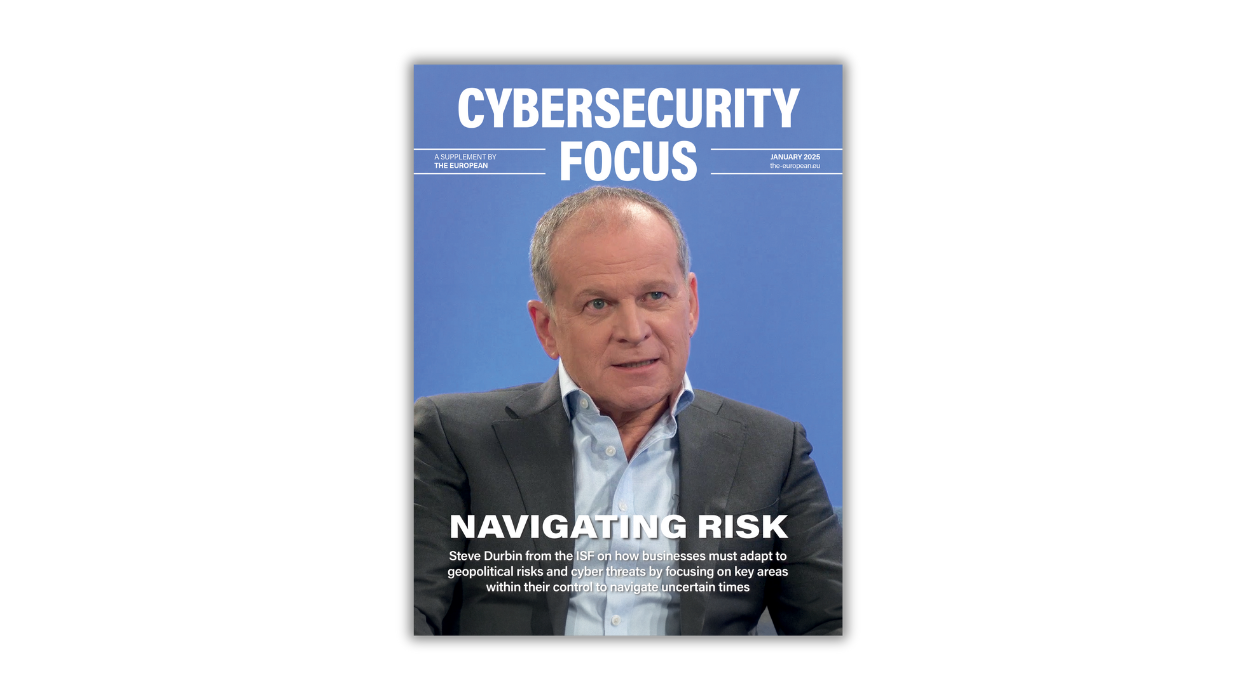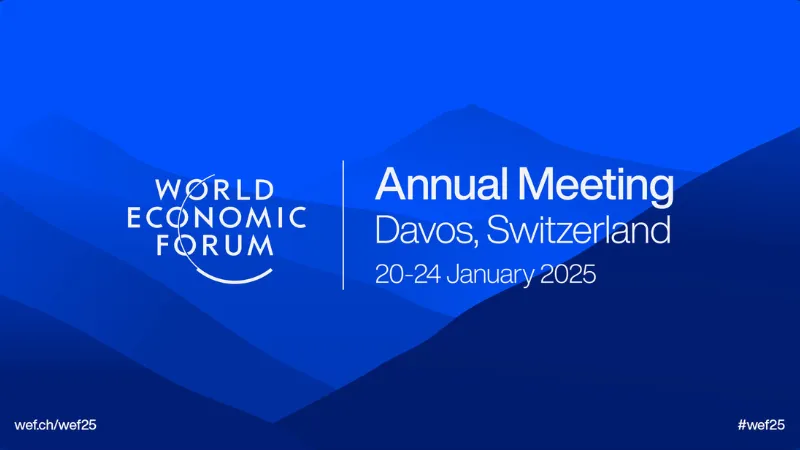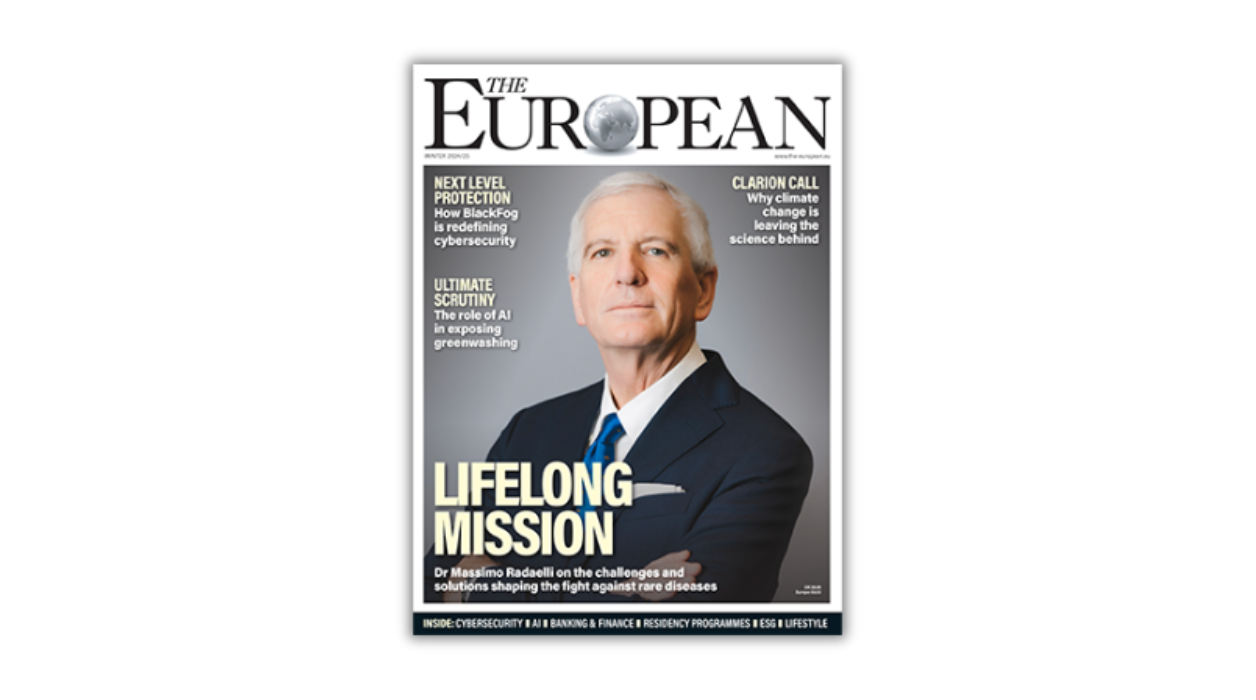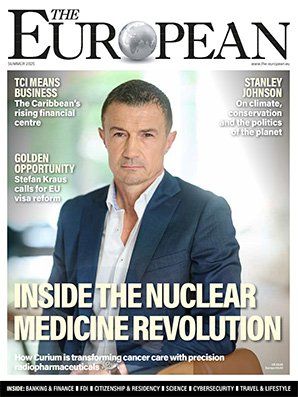Building resilience through innovation

John E. Kaye
- Published
- Business, Home, Technology
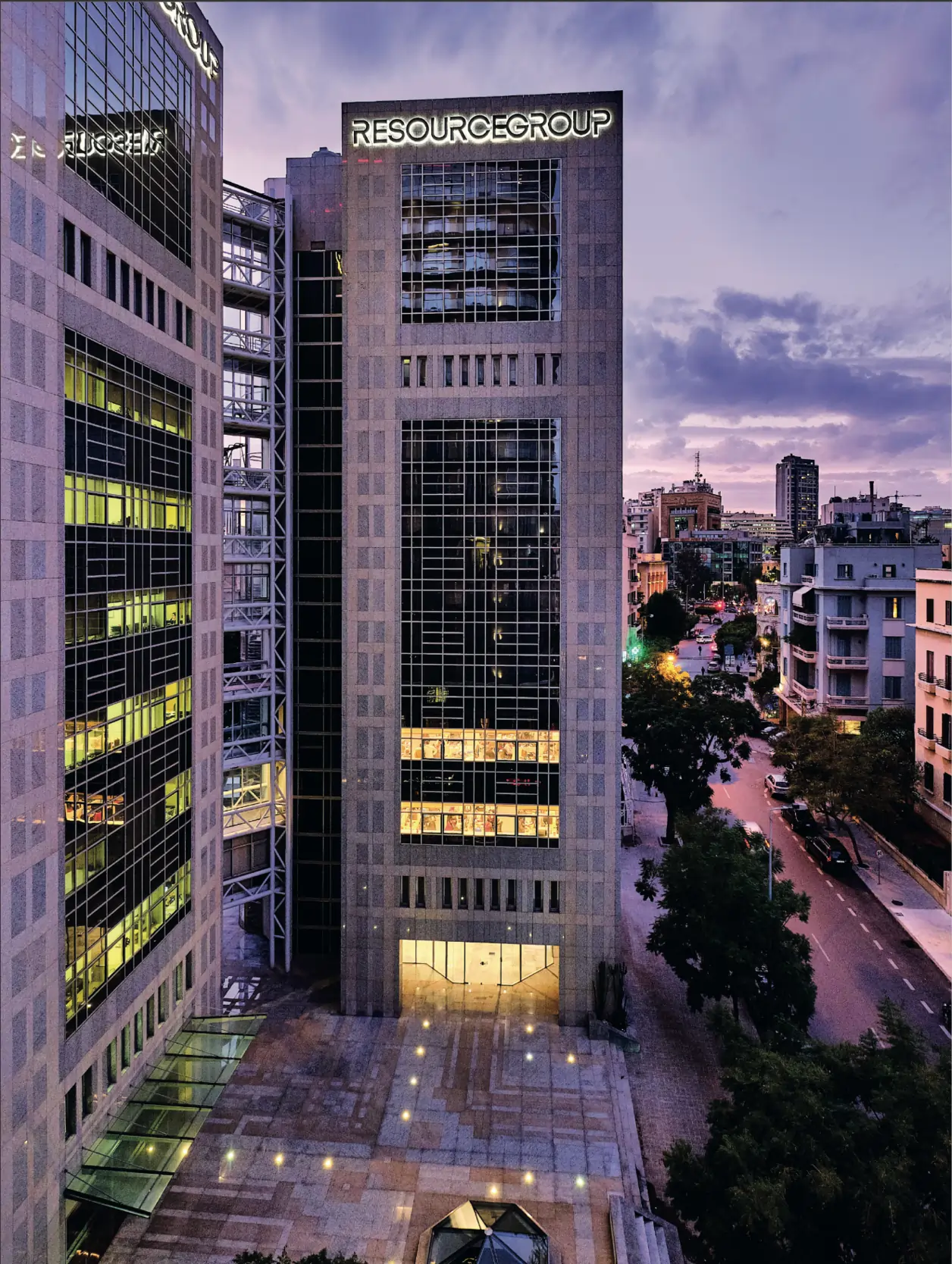
Embracing change and driving innovation is essential for a business to emerge stronger from challenging times, as technology leader Resource Group has demonstrated
Leading through innovation has become a key driver for growth – something Hisham Itani, Chairman and CEO of Resource Group knows all too well. A technology group operating in the Middle East and Africa (MEA) region, Itani has been recognised by The European as “Technology CEO of the Year MENA 2022”. When we caught up with him recently, he was keen to talk about the importance of business resiliency and how leading in an unstable environment is a force for sustainable change.
Thriving during a crisis
Disruptive events have become commonplace across the global business ecosystem in recent years. From the coronavirus pandemic, to Brexit and recessionary fears, organisations that fail to adapt to a quickly changing operating environment will fall behind competitors and leave customers unsatisfied. Navigating such complex situations is no small task for corporate leaders. Managing a diverse workforce, staying profitable and still being an innovative business requires a concerted effort by the entire team. However, leaders need to ensure they have awful business resiliency programme in place that is able to navigate change and perform well in times of crisis.
While many businesses have continuation plans in place, the sheer scale of nascent threats may mean that these are not enough to contend with future challenges. The importance of embracing technology and digitalisation became clear during the pandemic and highlighted the vital role of leadership in times of crisis or radical change. “Our role is to prepare our people and our business for the unexpected,” says Hisham Itani. “Nothing is static and being able to rethink your organisation and be ready to ride any coming wave with an open mind is the only way to weather a storm.”
It is clear to see the benefits that businesses can gain from putting digital innovation at the forefront of their operations. A McKinsey report found that leaders at companies that experimented with new digital technologies during the coronavirus pandemic or invested heavily in digital technologies recorded outsized revenue growth.
Complex region
Even during a global crisis, each region will have a unique set of challenges to contend with. For example, many countries in the MEA region dealt with issues such as supply chain disruptions and economic issues, but they also had to face political and social disturbances at the same time. While no two countries experienced exactly the same challenges during and after the pandemic, similar issues existed across the world. Different governments have also introduced a range of programmes in the aftermath of Covid-19 to build up a more resilient post-pandemic digital infrastructure.
In practice, when the pandemic first appeared, both companies and governments made a concerted effort to work more closely together and more deeply integrate technologies like AI, machine-learning and cloud computing. A mindset shift drove executives in industry and government to refocus on achieving inclusive development through digital innovation. In fact, Resource Group has invested for a long time not only in R&D but also in human talent, which allowed the company to use innovation as a driving force to solve challenges that citizens face every day. As a result, the company has been supporting governments in the MEA region in automating their processes, thus uplifting their infrastructure in line with digital transformation.
Whether with biometric identification or overall end-to-end solutions, Resource Group’s proprietary solutions have given the company an edge in promoting local innovations and mostly showcasing the potential that lies in the region in terms of human capital and export of knowledge.
Overcoming weak infrastructure is another issue that must be addressed before higher levels of digital innovation can be achieved.
“A reliable technological infrastructure is something that many people take for granted, and yet is not guaranteed. We need to be at the forefront in finding solutions to ensure the infrastructure is advanced and capable of supporting the robust growth and accessibility it requires,” says Itani.
Innovation first
Rather than pulling back and standing by while the coronavirus crisis unfolded, leading companies stepped up to the challenge and doubled-down on innovation to thrive at a time of disruption. According to research from consultancy McKinsey, Covid-19 has accelerated the digitisation of customers interactions by several years.
In 2007, just 29% of the projects and services offered by companies were digitised to some extent. But by 2020, this figure increased to 55%, illustrating the major shift in just a few years. Furthermore, collaboration is at the heart of innovation. ‘The latter is produced through collaborative actions to drive growth and create value. Resource Group has developed close partnerships over the years with world-class vendors and global technical partners to complement their proprietary solutions while operating under strict industry regulations and following international processes and accreditations.
Similarly, entrepreneurship creates a culture of innovation. Therefore, supporting youth’s creative ideas is important to promote this culture of innovation that translates into economic value. On that note, Itani explains that supporting innovative ideas is part of what they do, promoting a culture of entrepreneurship among their teams, but also aiming to spread this culture among the youth by partnering with educational institutions. “This allows us to provide students with the needed support to build their ideas and turn them into profitable businesses,” says Itani. For example, Resource Group has been supporting The American University of Beirut (AUB) and Saint-Joseph University (US) in Beirut by launching several innovation and entrepreneurship awards. By supporting these ideas, businesses such as
Resource Group are helping to set the grounds for more innovation within the educational environment. Innovation is also about transformation. And as technology is advancing at a high speed, digital innovation is no longer a luxury. Even companies that didn’t view themselves as digitally focused have transitioned to digital-first firms. With consumers shifting to digital channels, businesses quickly realised they needed to meet customers where they are- not where they used to be. Businesses and governments that didn’t quickly innovate and move away from physical, face-to-face interaction lost value overnight. Improving and expanding digital solutions requires an equally strong commitment to digital innovation and transformation. From embracing remote working and offering customers digital channels to making supply chains more efficient, transformation is key.
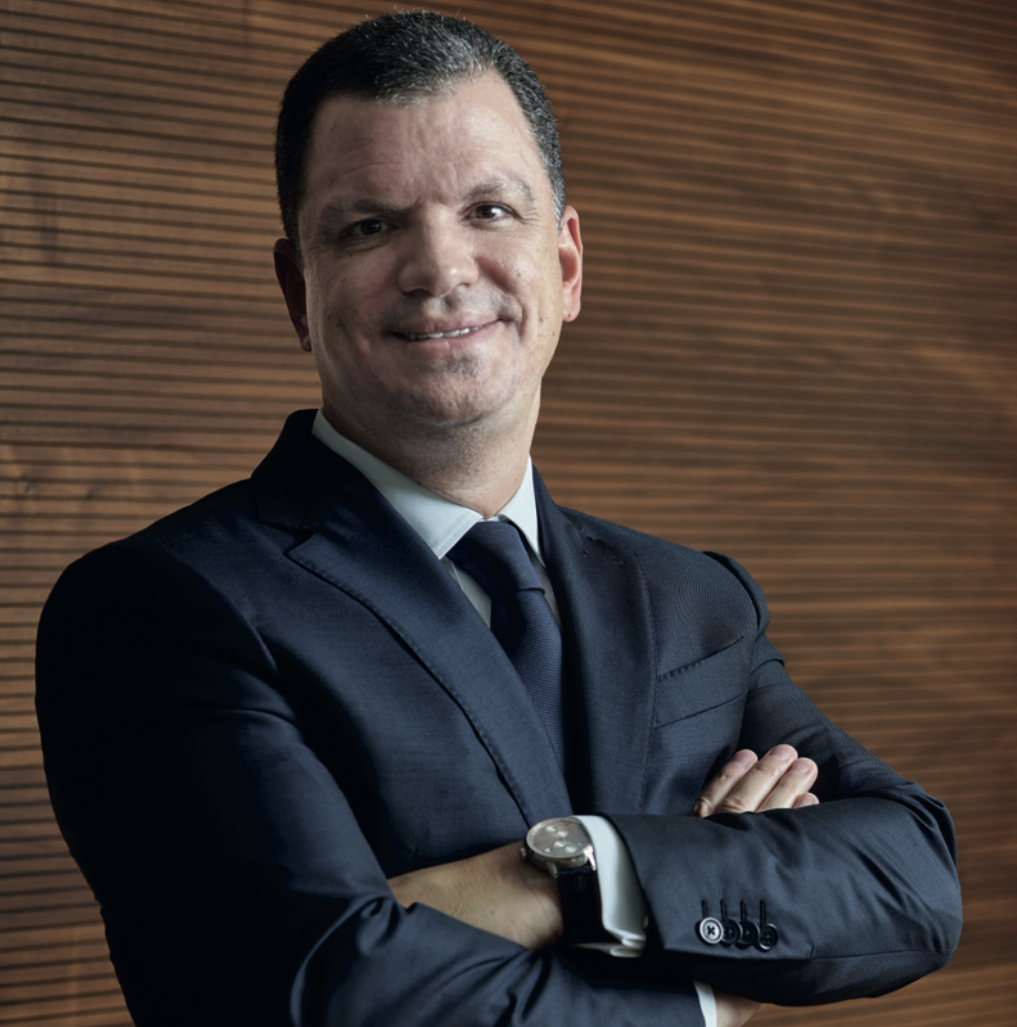
—————————————————–
Hisham Itani, Chairman and CEO, Resource Group
Future-focused
As a post-pandemic future is now being charted, leaders have a central role to play in ensuring sustainability and corporate social responsibility goals are met while pursuing growth and digital innovation. “As CEOs, we need to introduce and implement new technologies that support our business and human vision. For example, the introduction of artificial intelligence and cybersecurity solutions provide immense value to the organisation such as new revenue opportunities, enhanced customer experience, increased security and privacy, among others,” says Itani.
One thing is for sure – there is no sign of technological innovation slowing down. As people around the world migrate further to digital ecosystems, the governments and companies that serve them need to continue evolving. There is no question that difficult challenges will come in the next few years as the rate of change continues at a rapid pace, with some companies not being able to keep up with the sheer level of innovation that is expected of them. However, leaders who create a well-defined vision of how their organisation can survive and even thrive during disruptive events, will succeed. “The future is unpredictable when it comes to technology. ‘The pandemic certainly showed us that we can have more productivity and creativity in the most challenging environment,” concludes Itani. “This is how innovations are born.”
Further information
Sign up to The European Newsletter
RECENT ARTICLES
-
 Liechtenstein lands AAA rating again as PM hails “exceptional stability”
Liechtenstein lands AAA rating again as PM hails “exceptional stability” -
 The Parisian business school quietly reinventing the MBA
The Parisian business school quietly reinventing the MBA -
 UK entrepreneur who founded £1bn firm acquires UAE amateur golf leader to launch world amateur Super League
UK entrepreneur who founded £1bn firm acquires UAE amateur golf leader to launch world amateur Super League -
 Why your home is the best place to teach children leadership
Why your home is the best place to teach children leadership -
 Inside the Spring 2025 Edition of The European
Inside the Spring 2025 Edition of The European -
 The Paris MBA designed for real-world leadership
The Paris MBA designed for real-world leadership -
 Soft2Bet reflects on eight years of leadership and philanthropy in new film featuring CEO Uri Poliavich
Soft2Bet reflects on eight years of leadership and philanthropy in new film featuring CEO Uri Poliavich -
 Global Banking School celebrates ‘milestone’ anniversary
Global Banking School celebrates ‘milestone’ anniversary -
 Saudi Arabia hosts the fourth Riyadh International Humanitarian Forum
Saudi Arabia hosts the fourth Riyadh International Humanitarian Forum -
 New York Congresswoman pushes for Trump’s birthday to be enshrined as federal holiday
New York Congresswoman pushes for Trump’s birthday to be enshrined as federal holiday -
 Red light, green bite: Netflix restaurant opens in Vegas
Red light, green bite: Netflix restaurant opens in Vegas -
 Read our Cybersecurity Focus supplement, featuring insights from Information Security Forum
Read our Cybersecurity Focus supplement, featuring insights from Information Security Forum -
 Davos World Economic Forum 2025: Collaboration for the Intelligent Age
Davos World Economic Forum 2025: Collaboration for the Intelligent Age -
 The European releases its Winter 2024/25 edition
The European releases its Winter 2024/25 edition -
 Read our FDI Focus supplement, featuring insights from Michael Lohan of IDA Ireland
Read our FDI Focus supplement, featuring insights from Michael Lohan of IDA Ireland -
 PizzaExpress to Expand Dough Base Stateside
PizzaExpress to Expand Dough Base Stateside -
 The two core skills middle managers need to navigate stormy weather
The two core skills middle managers need to navigate stormy weather -
 The Role of Financial Regulations in the Online Casino Industry
The Role of Financial Regulations in the Online Casino Industry -
 How to become a game-changer
How to become a game-changer -
 Taking the risk out of BOP ventures
Taking the risk out of BOP ventures -
 Releaf leading the way with marketing
Releaf leading the way with marketing -
 A model for building winning teams
A model for building winning teams -
 Get comfortable with not knowing
Get comfortable with not knowing -
 Preparing students today to lead tomorrow’s digital transformation
Preparing students today to lead tomorrow’s digital transformation -
 Is tech ready for Gen Z?
Is tech ready for Gen Z?












